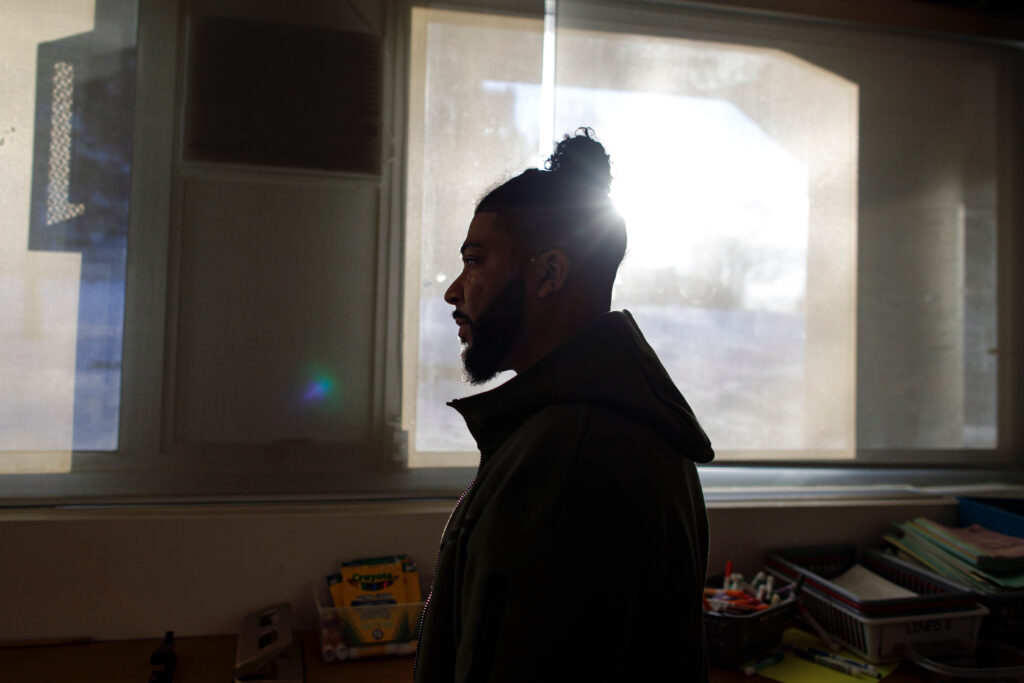It started with an itch at the top of my throat. I told myself not to drink any cold water––something I did almost every morning. After online teaching, I couldn’t get off my couch. I wasn’t physically incapable of doing so, but I just didn’t feel like moving. Hours later the chills came. I made a bowl of chicken noodle soup for dinner. Midway through the night I woke to grab an extra blanket because I felt extra cold. Back in bed I couldn’t fall back to sleep. My bed was too damp. I had sweat through my bed sheets. I knew what the rapid test would read the next morning. I had Covid.
I drank all the different types of herbal teas I had in my little cupboard and did my Googles on preventative measures to fight Covid (because that’s how my mind works) hoping that the dreaded fear that everyone has had in the back of their heads since late 2019 wouldn’t hit me any harder. Thankfully it didn’t. But I still needed to let my school know that I had to quarantine and wouldn’t be back with the rest of my colleagues when school finally reopened. My return date was set for the Friday of that first day back and I had a plan: I would tell my students the reason why I was missing. Authenticity through demonstrating vulnerability, right?
My classroom was a straight up mess. Not a good start. The supply teacher had to definitely be one of those ones who came to school with a sudoku puzzle book and a newspaper. As students slowly filtered in, it hit me that I hadn’t really taught taught in over a month.
“Good morning, 7B.” I said after the morning announcements finished. A handful of students answered me. I waited before saying anything more. The picture I had painted in my head was already off. “Good morning, 7B.” A few more students responded the second time. The questions that I predicted weren’t coming out. “So…ahem, yeah so, I was away for a few days. The reason why I was away…” I hesitated and looked around. “I haven’t been here because…”
“How come so many people are away today?” I pivoted, asked and without waiting for a response, followed up by asking, “So, how has the first few days back been? Has it been weird? What’s it like being back in person instead of in front of the computer screen?” We talked for less than five minutes and then decided on a due date for the writing project we had been working on during virtual school. I walked back to my desk and started organizing things that were already organized. Monday, I said to myself. Monday I’d tell them.
“So, listen.” I started Monday morning. “The reason why I missed a few days last week is because I tested positive for Covid.” I adjusted the mask on my face. “I actually had it when we were online.”
I expected my revelation to take up half of the first period. It took up less than four minutes. “Yeah, I had it over winter break” one student responded. Others chimed in: “My aunty had it and had to stay in our basement for a week”… “They said on the news that we had sixteen thousand cases the other day”… Towards the end of those few short minutes one student said, “Mr. Morris, can I ask you a question?” I thought this would be the breakthrough that I had envisioned. The moment where some words would spark some conversation that led to deep relationship building and all that good stuff. “Mr. Morris, can we have an extra gym period today since our supply teacher last week didn’t take us to the gym? Please.”
A year ago Covid was such a taboo topic that it had families soaking their groceries in the kitchen sink and schools sending home entire cohorts after one positive case. We’re past that now. Covid is still as real and as scary and as dangerous and as consuming as it first was. I thought that by getting Covid and then discussing my experience would be something that my students would gravitate towards. They didn’t. I do not think that that means we are out of the woods with this. But I think it demonstrates how the individual mind––especially the youthful one––navigates the world, their community, the information they receive, and the obscure phenomena that become part of our evolving lexicon. This understanding moves way beyond Covid. How we react to the stimuli around us shows just how powerful collective culture has always been and will always be.
So yeah, happy Black History Month, y’all.

